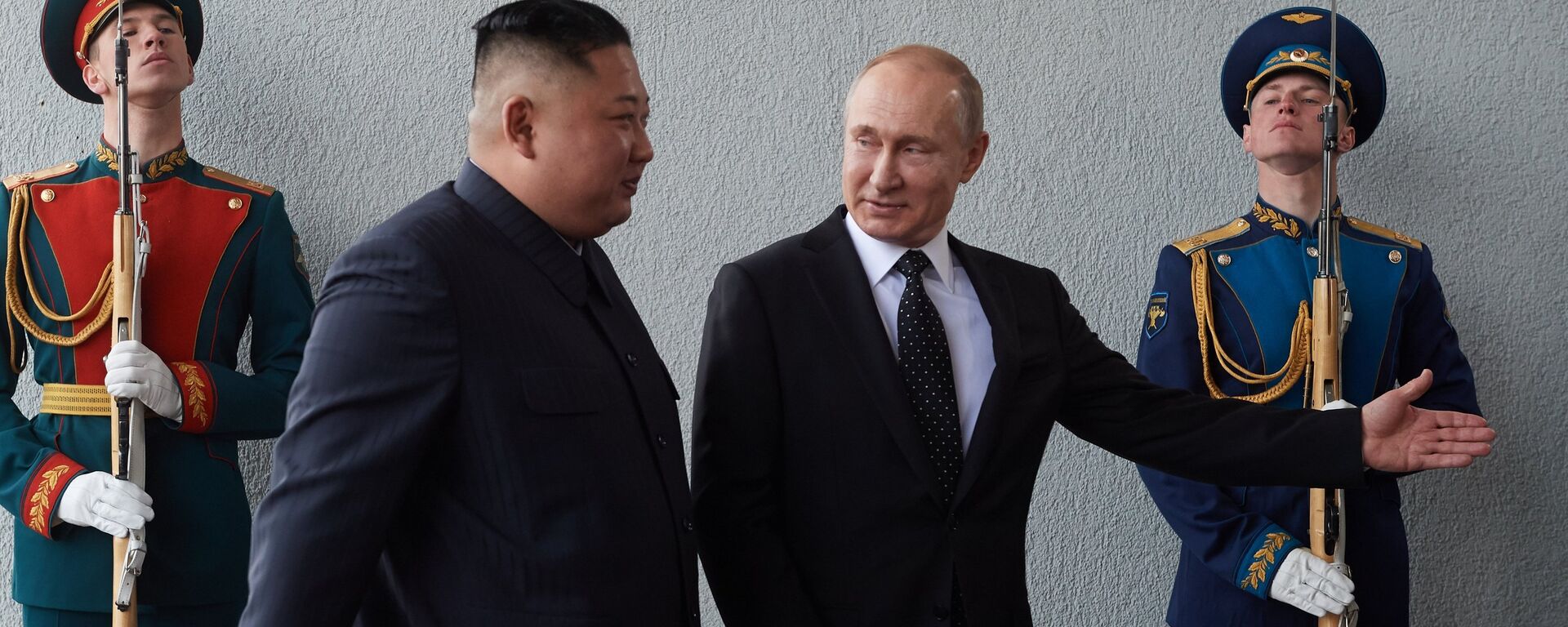How Joint Space Exploration Could Benefit Russia and North Korea
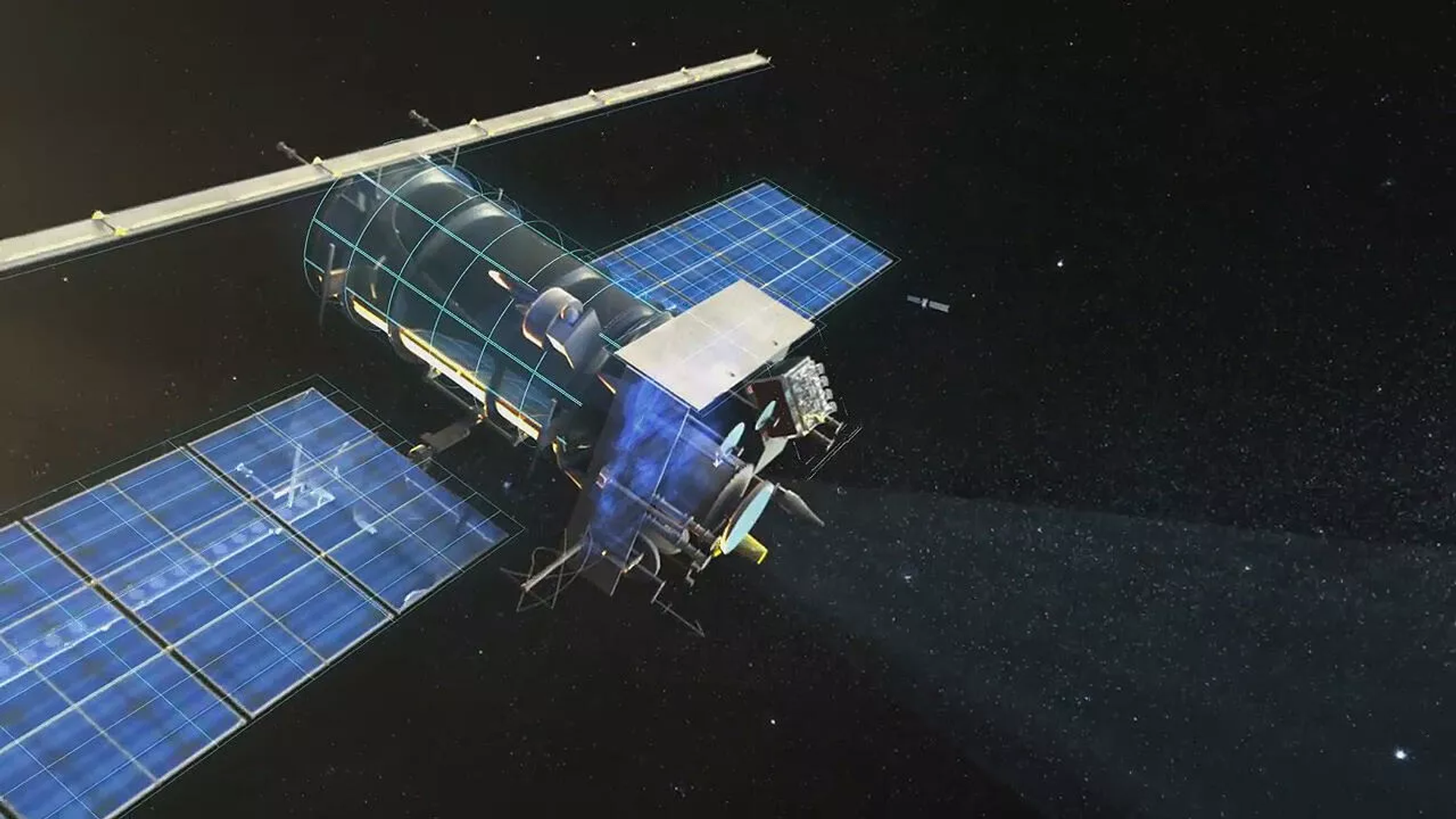
© Photo Russian Space Systems
Subscribe
Longread
In response to the leader of the DPRK's high-level state visit to Russia, Nathan Eismont of the Space Research Institute told Sputnik that Russia and North Korea might collaborate to develop cutting-edge satellite technology.
Russian President Vladimir Putin and Democratic People's Republic of Korea (DPRK) Chairman Kim Jong Un held a meeting on Wednesday at the Vostochny Cosmodrome – a Russian spaceport in the Amur region of Russia's Far East.
The Vostochny Cosmodrome came into service in 2016 and has seen 15 launches since, most of which were successful. In February 2023, the Russian State Space Corporation "Roscosmos" announced on its Telegram account that from October 2018 there have been a whopping 100 consecutive successful launches of Russian spacecraft. Forty-six of them were made from the Baikonur Cosmodrome, 36 from Plesetsk, nine from the Vostochny Cosmodrome and nine from the Guiana Space Center.
At Vostochny, Putin and Kim took a look at the assembly process of the Angara launch vehicle and performance characteristics of the Soyuz-2 launch vehicle. When asked by journalists whether Russia would help North Korea build satellites, Putin responded that he and his counterpart came to the spaceport for this very reason.
"That’s why we are here," the Russian president said. "The leader of the DPRK has shown great interest in rocket technology, they are trying to explore space."
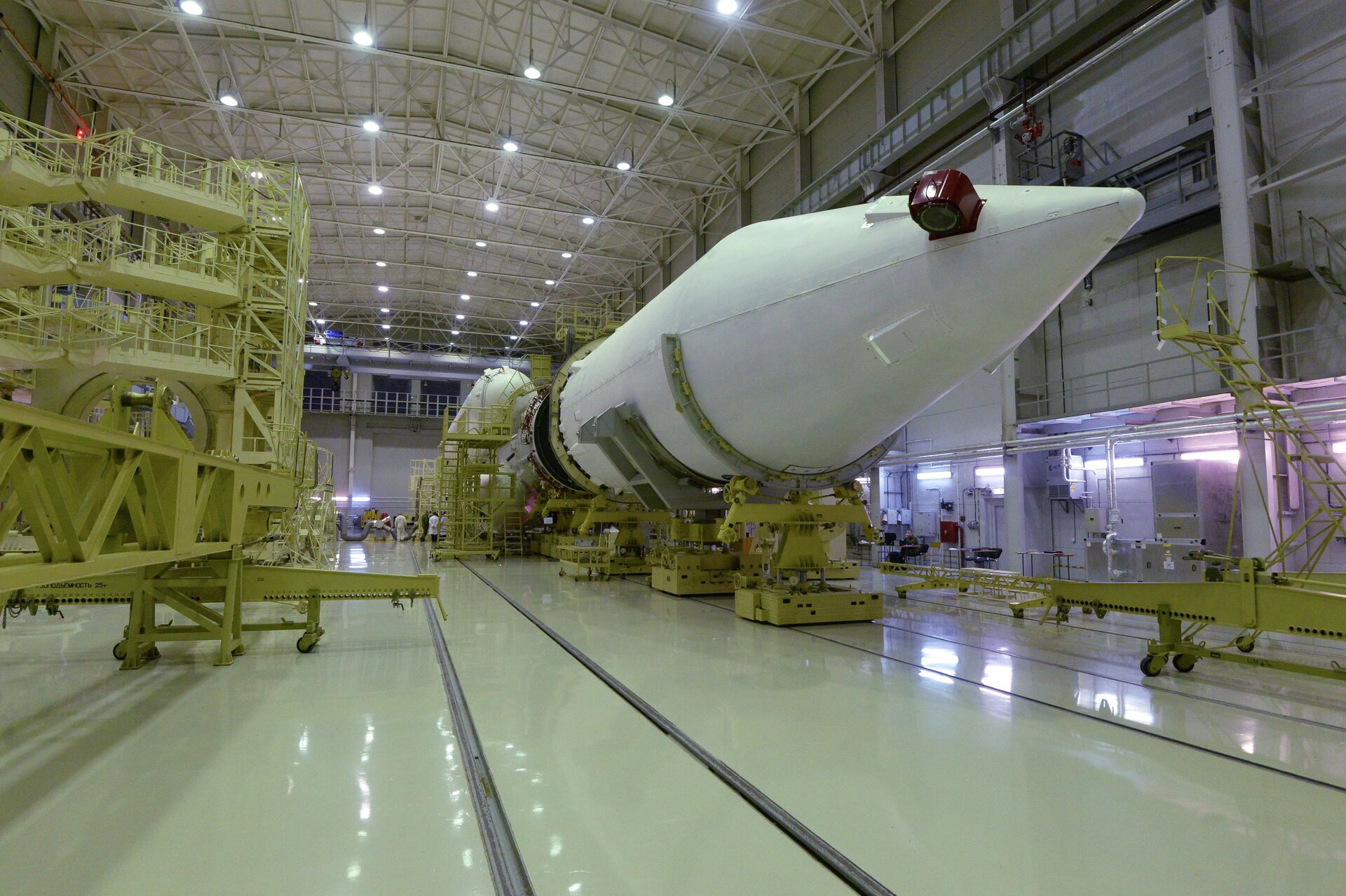
© Sputnik
/ The leaders also discussed the possibility of sending a North Korean cosmonaut into space, as Kremlin spokesperson Dmitry Peskov told reporters.
"We talked about the fact that if the North Korean side wishes, a North Korean cosmonaut can be trained and launched into space," Peskov said.
Could Russia and North Korea Jointly Explore Space?
"North Koreans, in fact, have developed missiles on their own, although their purpose is military (ballistic missiles), which can, of course, be developed to a level that allows them to launch spacecraft," Nathan Eismont, a leading researcher at the Space Research Institute of the Russian Academy of Sciences, told Sputnik.
"But now we are talking about [North Koreans] using technologies that have already been developed in Russia. And both projects – Angara and Soyuz-2 – actually could be further improved and developed with the participation of North Korea. Why? Because Korea will join this work while having certain experience and developments. That is, they have technology, they have personnel. And therefore, if it is possible to involve North Korea in this work, it will be to the benefit of both sides. Because in fact, the presence of the Vostochny Cosmodrome, it would seem, is not so important, but the territorial proximity is still significant here, it simplifies logistics. So if such a proposal is implemented, it will be to the benefit of both parties."
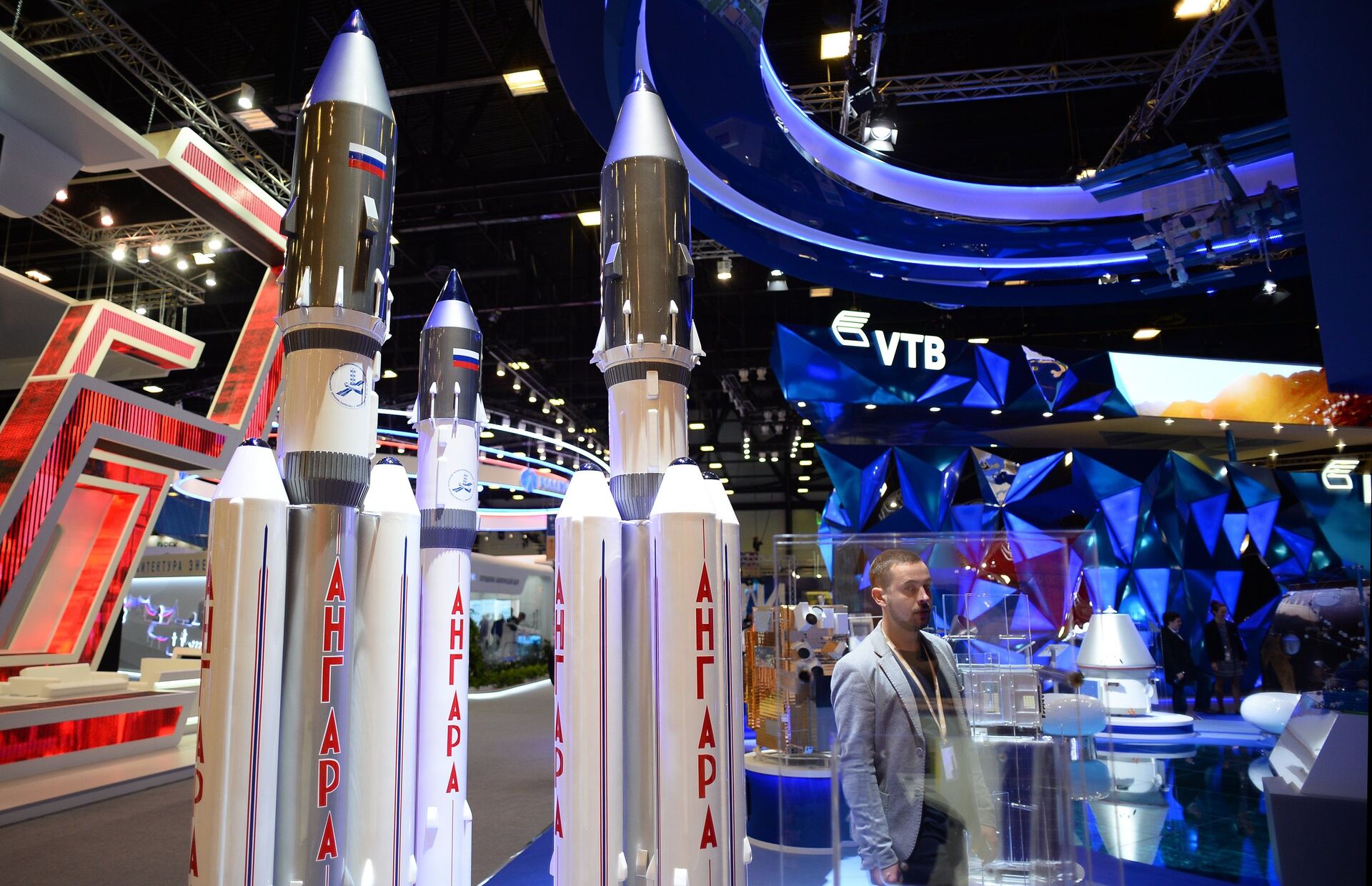
Stand of the Roskosmos state corporation in the Expoforum exhibition center before the opening of the 20th St. Petersburg International Economic Forum
© Sputnik . Ramil Sitdikov
/ Eismont explained that any type of bilateral and multilateral cooperation in outer space opens the door to the development of new technology, accelerates economic growth, and improves relations between the participants.
"If North Korea will be a participant in such activities, this, in my opinion, will help improve the international atmosphere in interaction with different countries," the research continued. "I am confident that cooperation between North Korea and Russia will bear fruits which will go beyond the space industry. We will not only strengthen our achievements now, but we will also be able to borrow the experience and personnel of the North Koreans, who also developed technologies of this kind."
When Did North Korea's Space Program Start?
The start of work on the rocket and space program in North Korea dates back to the mid-1970s. It was the time when some Soviet and Chinese space technologies were transferred to North Korean specialists. As a result of that cooperation, a series of short-range missile systems was built in the DPRK in the late 1980s. In addition, North Korean specialists laid the groundwork for the development of a medium-range ballistic missile.
In the mid-1990s, the DPRK began developing multi-stage long-range missiles. Probably, in the same period, the nation's space launch project was also kicked off. The construction of the first Korean spaceport Tonghae, better known as the Musudan-ri rocket launching site, began approximately in 1982-1983. The North Korean rocket program has long been veiled in secrecy.
The first tests at the Musudan launching site were detected by foreign intelligence services in April and September 1984. It was believed that the Hwasong-5 ballistic missile, which has a firing range of 200-250 km, was tested.
In May 1993, intensive testing of the Nodong-1, Hwasong-5 and Hwasong-6 ballistic missiles took place.
On August 31, 1998, according to US intelligence reports, North Korea successfully tested the Taepodong-1 three-stage ballistic missile.
Shortly after the Taepodong-1 launch, Pyongyang announced that it had launched the first North Korean artificial earth satellite Kwangmyongsong-1 (Shining Star-1) into orbit. The event caused much controversy in the mainstream press, with Western experts claiming that the North Korean satellite failed to reach orbit.
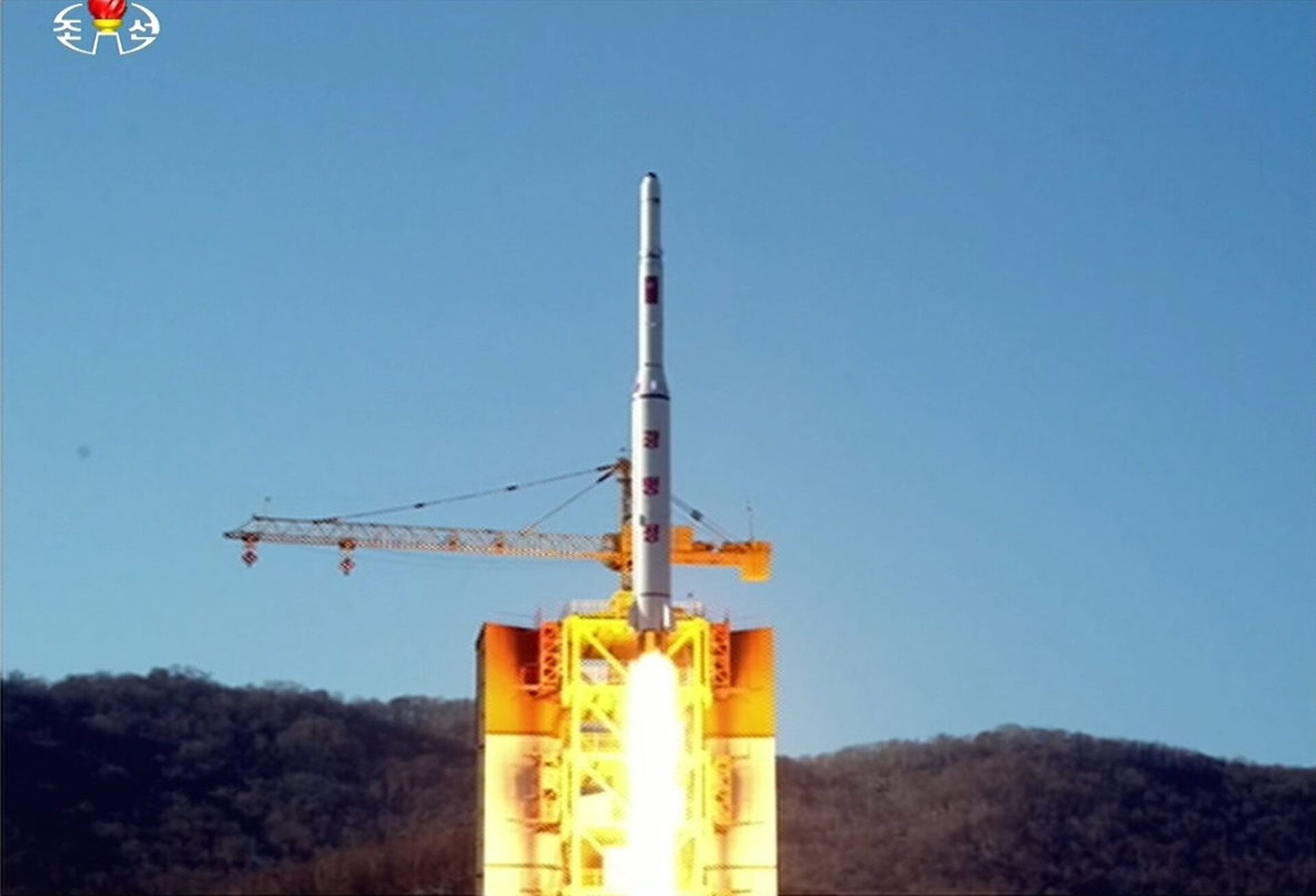
© AFP 2024
However, North Korea's success in launching Kwangmyongsong-3 on December 12, 2012, could not be denied. The country has rightfully joined the club of space powers outpacing its southern neighbor, the Republic of Korea.
On February 7, 2016, the DPRK launched Kwangmyongsong-4. The satellite was designed to analyze weather conditions and provide data about the state of forests, rivers, lakes, and agricultural land.
Over the past ten years, the DPRK has mastered itself in developing new rockets and space technologies despite sanctions pressure from the West. In July this year, Pyongyang officially announced that it had successfully launched a solid-fuel intercontinental ballistic missile (ICBM), the Hwasong-18. The launch sent shivers up the US military: if fired on a normal trajectory, it would be capable of traveling more than 12,875 km - easily reaching the continental United States.
How Russia Can Help North Korea Launch New Satellites
Still, North Korea has some difficulties in launching new satellites and here Russia's help could come in handy, according to Eismont.
Indeed, Pyongyang's second attempt to launch a military reconnaissance satellite failed after an issue occurred during the rocket’s third phase, state media revealed in August. The launch of the Malligyong-1 satellite was carried on a new type of carrier rocket, the Chollima-1.
Given that the nation's first launches of satellites proved successful shows that Pyongyang possesses technological expertise and simply needs some assistance, per the expert. Russia's experience will help North Koreans move much faster in this direction, Eismont stressed.
For its part, Russia is interested in going even further in exploring new satellite technology, the researcher continued. One of those promising areas is constellations of satellites, akin to those instrumentalized by Elon Musk's Starlink.
These constellations could help study the Earth from space, deliver high-speed broadband internet to distant locations, and be useful in myriads of other tasks, the expert noted. Eismont highlighted that the more trained specialists take part in creating satellite constellations, "the greater the benefit will be for those who develop this cutting-edge technology." He believes that Russia and North Korea could jointly work in the field, too.
"Why will North Korea benefit [from cooperation with Russia]? Because they have clearly focused on the development of [satellite technology] and have already conducted experimental launches. That means they need it. If they cooperate, then, of course, the speed of their progress in this direction will be significantly greater than if they continued to carry it out (…) in isolation and not using the experience of other countries. That is, the advantage of such developments in this direction is absolutely clear."
Eismont pointed out that long-term strategic relations between Moscow and Pyongyang would serve as a guarantee for fruitful cooperation in the field of space exploration. According to him, Russia needs allies in space it can rely upon and trust. "The DPRK’s desire to participate in space developments is encouraging," the expert concluded.
